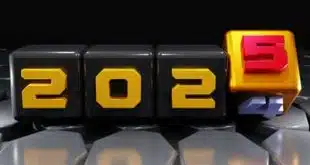When payment volumes and values are displayed as a single graphic, some interesting patterns emerge about how we use current payment methods. Are there implications for new and future payment methods?
– Debit card has the highest number of transactions but the lowest total value of those transactions. It has become the new pocket change (parking meters, vending machines).
– Credit card volume is trailing debit card volume. One might venture a guess that this is due to the historically high interest rates and cardholder fees being charged.
– Checks continue a slow decline in volume; and the value rank is following suit.
– ACH debits, which tend to be consumer-related payments, show low volume but high value.
– ACH credits, which are often corporate and government transactions, have the lowest volume of any payment type while carrying the highest value due to big-ticket payments.
An observation perhaps remarkable only to graphics aficionados is the perfect inverse symmetry that shows up when the data is displayed in a single graphic icon rather than the usual bars and curves on a grid.
Given the cost to both merchant and bank of transporting, securely storing, and handling cash, one could predict that debit card use is pretty much here to stay, buttressed by the special-purpose debit cards distributed to government-benefit recipients, contest winners, gift recipients, etc. Debit card use will likely grow even more with new services such as Visa Direct. The use of debit cards as both the sender’s and the receiver’s storage medium for many of the new mobile-payment methods should also assure debit cards’ continued position at the top of the volume chart.
Credit cards, on the other hand, may be slowly asphyxiating themselves, except for large purchases, as the combination of historically high interest rates and high cardholder fees seems locked into an ever-increasing spiral. At some point one has to think people would stop using them at all for small purchases.
What Mark Twain supposedly said about himself, “The reports of my death have been greatly exaggerated,” could well be the motto for checks. Although check volume continues to decline slowly, we may begin to see evidence here of what has happened in other countries where small-business owners continue to use checks because they find them well-suited for the stapler method of accounting: attaching the image of the paid check to the invoice it is payment for. While mobile-capture and image-processing technology has reduced the cost to banks of processing checks, it has only made them more convenient for people to use.
Often, the more that new technology is applied to old payment methods, the more it keeps the old and supposedly inefficient means of making payments in play. The same path we have gone down with checks was traversed earlier as “wire” payments came to be wirelessly sent on high bandwidth, digital, global satellite networks, which added both greater speed and better security to an old way of paying by telegram.
In our own time, we have replaced the magnetic stripe with a chip without reducing the size of the cards or the terminals, when in reality the card now need not be any larger than the chip and the terminal no bigger than the PIN pad.
The reason that the old ways of making transactions don’t go away when new ones are invented is simply human nature at work. In many countries (especially the United States), even when a newer technology is “mandated,” little effort is made to retire the old method of making the same payment.
This message inherent in the pattern of the annual payments data raises a question we will tackle in an upcoming issue: Is fintech going to overthrow the historical pattern of new ways to pay being innovated without dramatically diminishing use of the old ones? Or is there something fundamentally, not just technologically, different this time?
—George Warfel • GWarfel@haddonhillgroup.com





